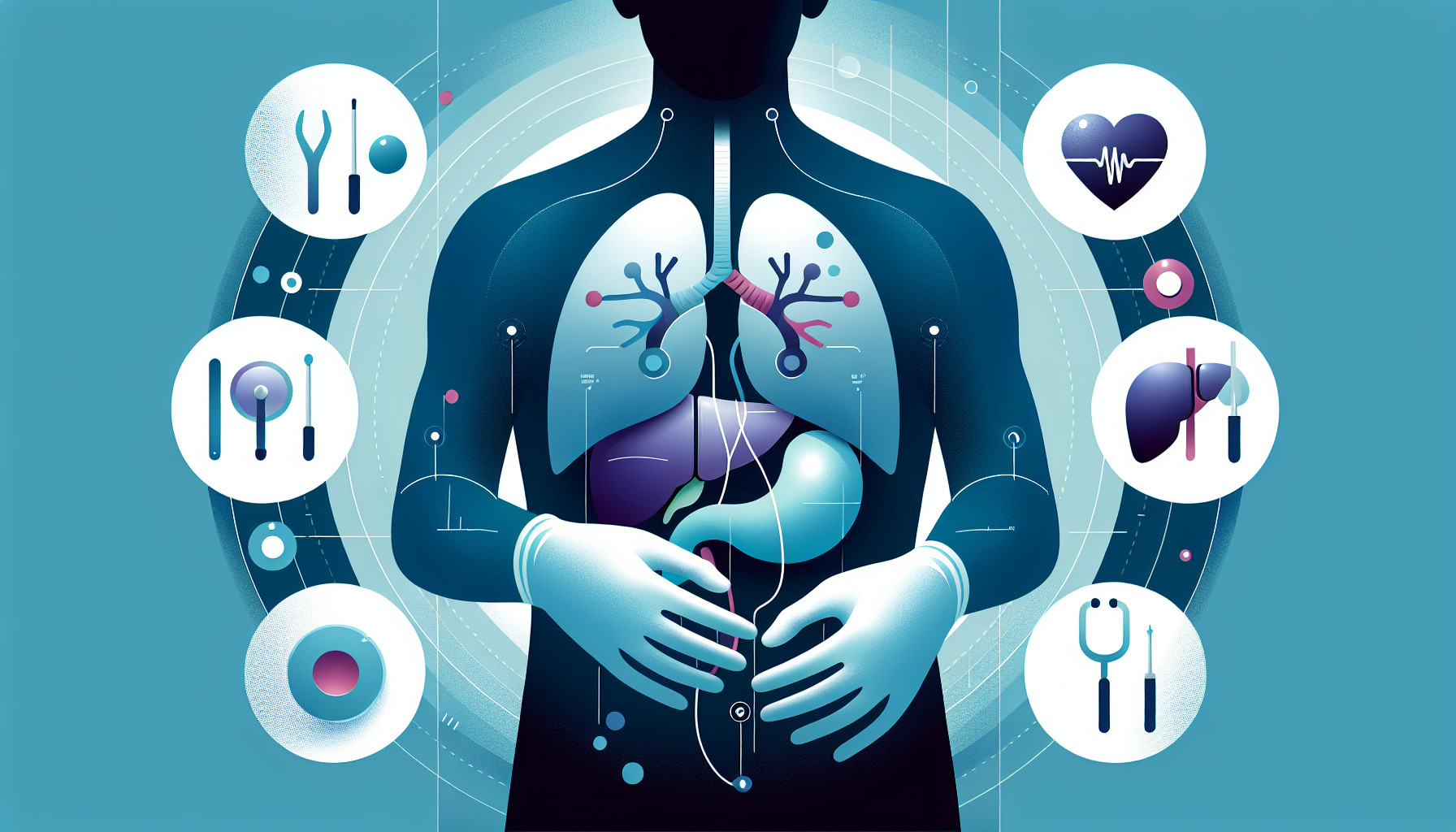Our Summary
The research paper explores the concept of diagnostic stewardship, or the careful management of medical testing, in patients who have received solid organ transplants. These patients are often at risk of being tested and treated excessively. The research specifically looks at testing for a bacteria called Clostridioides difficile, urine cultures, and molecular diagnostics. The findings suggest that a more strategic approach to C. difficile testing can significantly reduce the amount of tests and diagnoses without causing any harm due to delayed diagnosis. The study also found that routine urine testing doesn’t necessarily improve health outcomes for patients who have received a kidney transplant and are stable after the first month. The paper points out some new potential areas of diagnostic stewardship that need more research, such as noninvasive testing for fungal infections and different methods for testing for a virus called cytomegalovirus. The researchers conclude that diagnostic stewardship could be a valuable way to improve diagnosis and reduce unnecessary use of antibiotics in organ transplant patients. However, they emphasize that implementing this approach will require a team effort to ensure the right tests are used and the benefits are fully realized.
FAQs
- What is diagnostic stewardship in the context of solid organ transplants?
- How does a strategic approach to C. difficile testing benefit organ transplant patients?
- What are some potential areas of diagnostic stewardship that need further research according to the study?
Doctor’s Tip
A helpful tip a doctor might tell a patient about organ transplant is to follow a strict medication schedule to prevent rejection of the new organ. Missing doses or changing the timing of medication can increase the risk of rejection and other complications. It is important to communicate openly with your healthcare team about any concerns or side effects you may be experiencing, as they can help adjust your treatment plan accordingly. Regular follow-up appointments and monitoring are also essential to ensure the success of your transplant.
Suitable For
Patients who are typically recommended for organ transplant are those who have end-stage organ failure, such as kidney, liver, heart, lung, or pancreas failure, and have exhausted all other treatment options. These patients must undergo a thorough evaluation to determine if they are suitable candidates for organ transplant, including physical and psychological assessments, blood tests, imaging studies, and other diagnostic tests.
Ideal candidates for organ transplant are usually younger, otherwise healthy individuals who are motivated and committed to following a strict post-transplant regimen, including taking immunosuppressive medications to prevent organ rejection. Patients with a good support system, including family and friends who can help with caregiving and emotional support, are also preferred candidates for organ transplant.
Patients with certain medical conditions, such as active infections, cancer, severe heart or lung disease, or significant psychological issues, may not be recommended for organ transplant due to the increased risks associated with the surgery and immunosuppressive medications.
Ultimately, the decision to recommend organ transplant for a patient is made on a case-by-case basis by a multidisciplinary team of healthcare providers, including transplant surgeons, nephrologists, cardiologists, pulmonologists, and other specialists, who carefully weigh the risks and benefits of the procedure for each individual patient.
Timeline
Before an organ transplant, a patient will typically undergo a series of tests and evaluations to determine their eligibility for the procedure. This may include blood tests, imaging studies, and consultations with various healthcare providers. Once a suitable donor organ is found, the patient will undergo the transplant surgery.
After the transplant, the patient will be closely monitored in the hospital for any signs of rejection or complications. They will be placed on immunosuppressant medications to prevent their body from rejecting the new organ. In the weeks and months following the transplant, the patient will continue to have frequent follow-up appointments and tests to monitor their progress and adjust their medications as needed.
Over time, the patient will gradually regain their strength and ability to function normally. They will need to adhere to a strict medication regimen and follow-up schedule to ensure the long-term success of the transplant. The patient may experience a range of emotions and challenges during this time, including adjusting to life with a new organ and managing the side effects of immunosuppressant medications.
Ultimately, with proper care and monitoring, many organ transplant patients can go on to live long and healthy lives. However, they will need to remain vigilant about their health and continue to follow their healthcare provider’s recommendations for the rest of their lives.
What to Ask Your Doctor
- What specific tests will be needed before and after the organ transplant surgery?
- How frequently will I need to undergo testing for complications or rejection of the organ?
- What are the potential risks and benefits of undergoing these tests regularly?
- How will the results of these tests be interpreted and communicated to me?
- Are there any alternative testing methods that could be used to reduce the frequency of invasive tests?
- How can I be involved in the decision-making process regarding my testing schedule?
- Are there any specific lifestyle changes or precautions I should take to reduce the need for excessive testing?
- How will diagnostic stewardship be implemented in my care to ensure that unnecessary testing is avoided?
- What are the potential consequences of not following the recommended testing schedule?
- Are there any new developments in diagnostic testing for organ transplant recipients that I should be aware of?
Reference
Authors: Husson J, Bork JT, Morgan D, Baddley JW. Journal: Transpl Infect Dis. 2022 Oct;24(5):e13899. doi: 10.1111/tid.13899. PMID: 36254510
